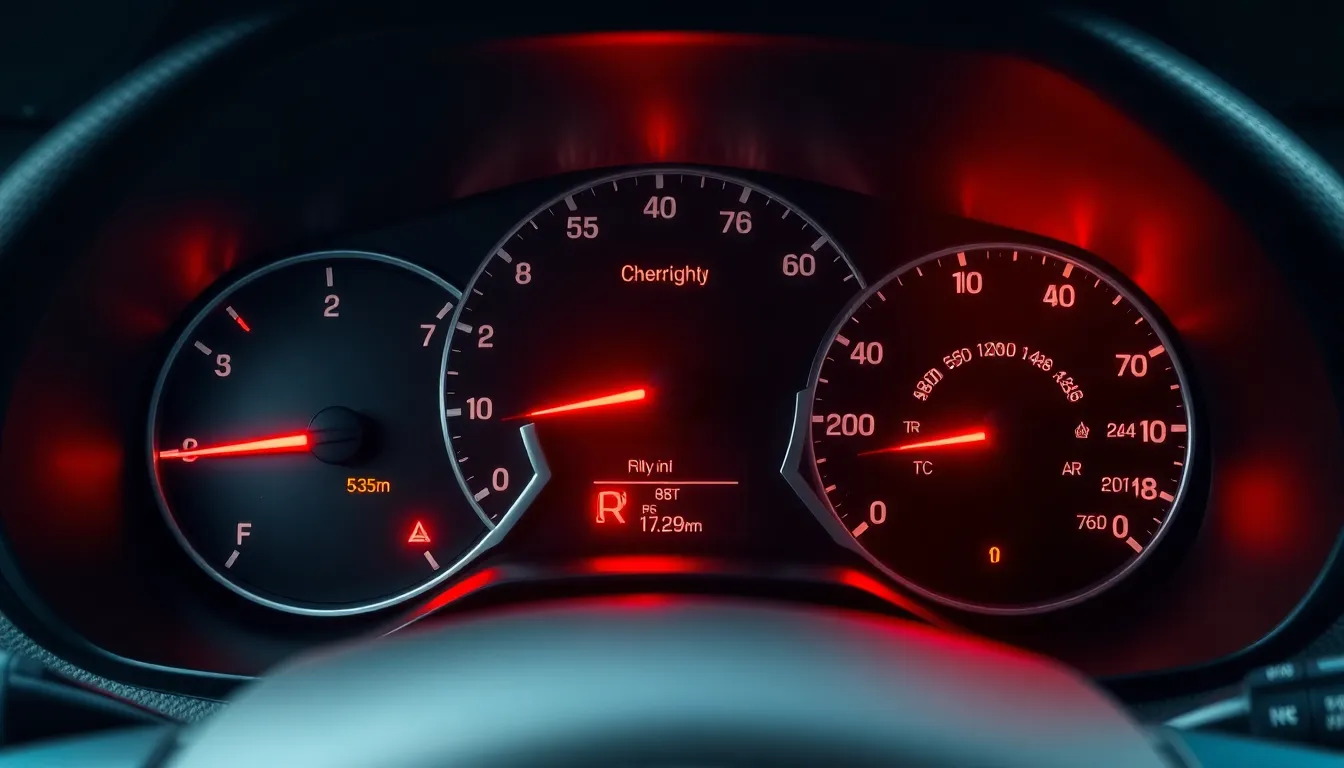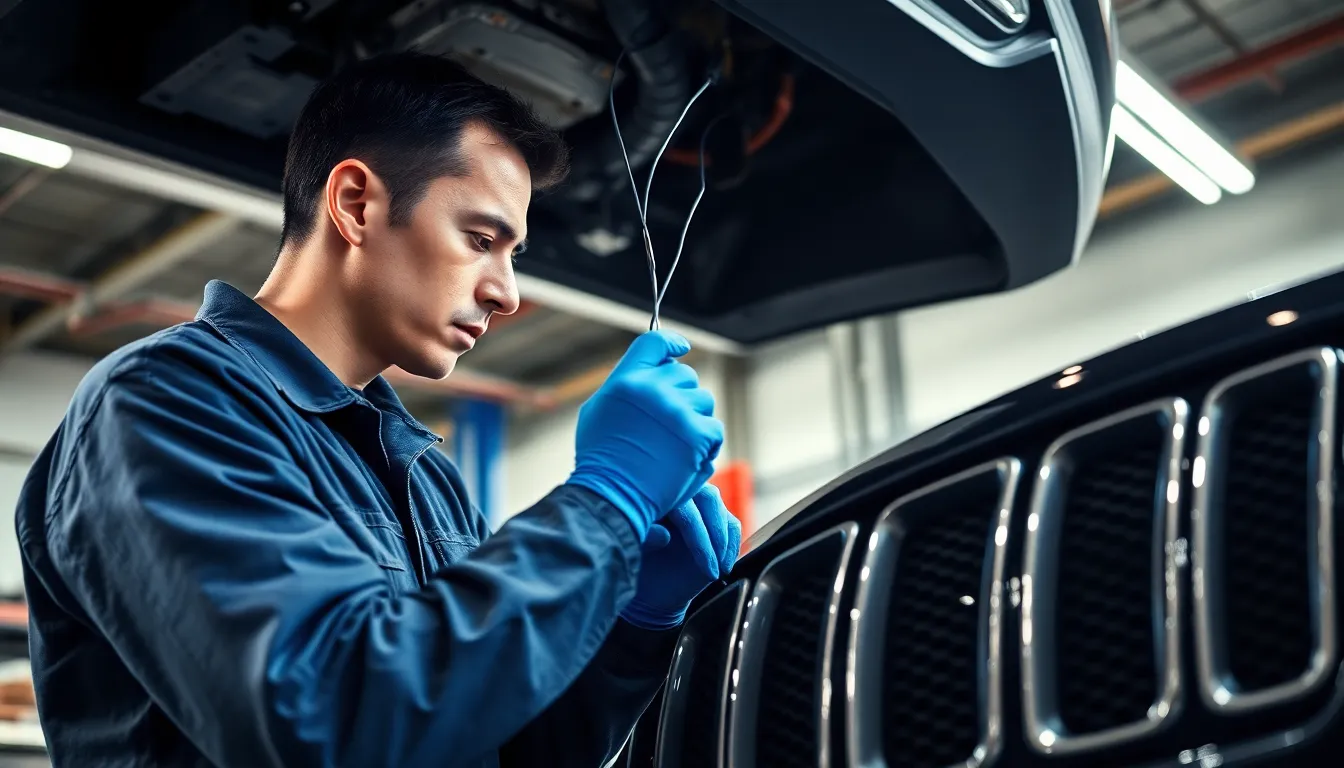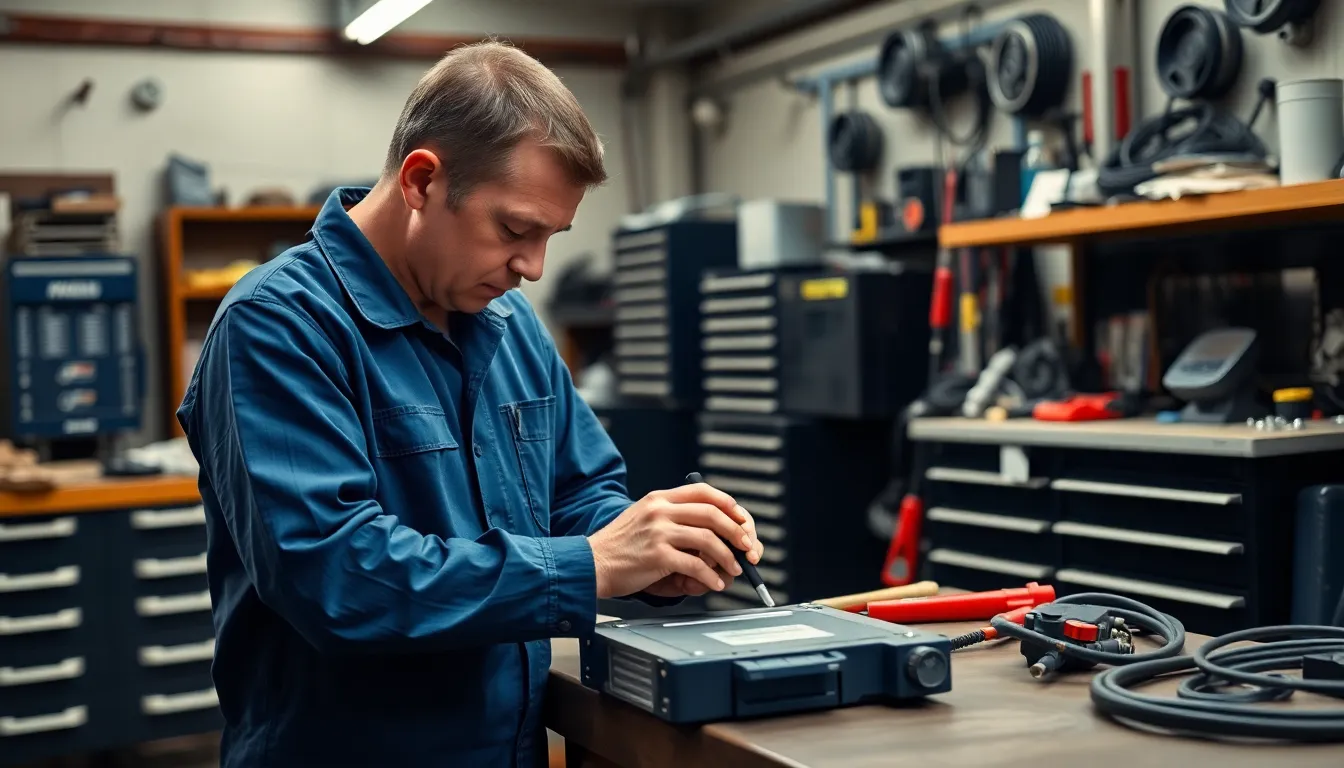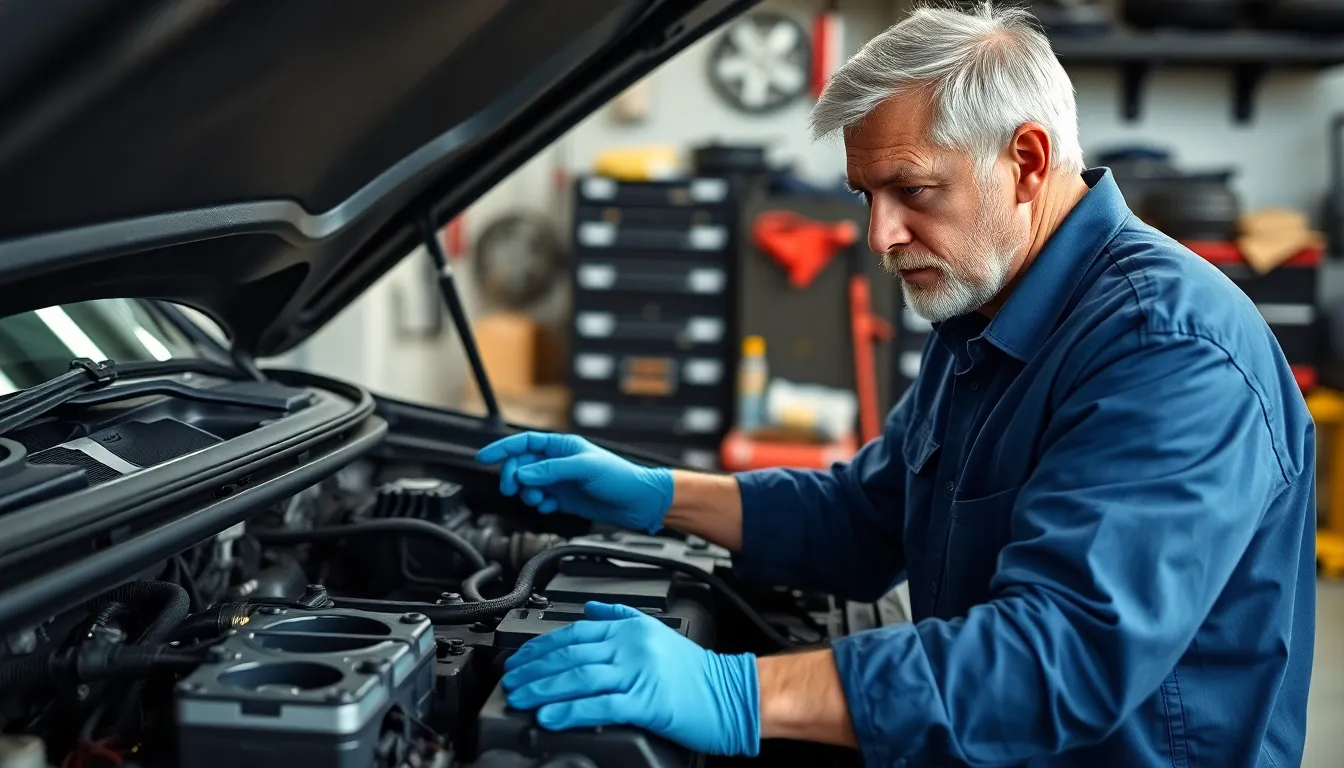Are you experiencing mysterious issues with your Jeep Grand Cherokee? The Powertrain Control Module (PCM) might be the culprit behind your vehicle’s troubling symptoms.
When your Jeep’s PCM starts failing, it can trigger a cascade of problems from engine misfires to transmission issues and even complete vehicle shutdown. As the brain of your vehicle’s engine management system, this critical component controls everything from fuel injection to emission systems. Unfortunately, Grand Cherokee owners across multiple model years have reported recurring PCM failures that can be both frustrating and expensive to address.
In this comprehensive guide, we’ll explore the most common Jeep Grand Cherokee PCM problems, warning signs to watch for, and practical answers to get your vehicle back on the road without very costly.
What Is a PCM and Its Function in the Jeep Grand Cherokee
The Powertrain Control Module (PCM) serves as the brain of your Jeep Grand Cherokee’s engine management system. This sophisticated computer unit monitors and controls crucial engine and transmission functions to ensure optimal performance. Located typically near the firewall on the passenger side of the engine compartment, the PCM continuously processes data from various sensors throughout your vehicle.
Your Jeep’s PCM manages several critical operations, including fuel injection timing, ignition timing, valve timing, transmission shifting patterns, and emissions control systems. It receives input from sensors measuring engine temperature, oxygen levels, throttle position, crankshaft position, and many other parameters to make real-time adjustments for efficiency and power.
Modern Jeep Grand Cherokee models feature increasingly complex PCMs that control more vehicle systems than earlier versions. These advanced units now integrate with other vehicle computers through the CAN (Controller Area Network) bus system, creating a comprehensive network that oversees nearly every aspect of your Jeep’s operation.
When functioning correctly, your PCM optimizes fuel economy while maintaining performance and keeping emissions within environmental regulations. It also stores diagnostic trouble codes (DTCs) when it detects abnormalities, triggering the check engine light and providing valuable information for troubleshooting problems.
Common Jeep Grand Cherokee PCM Problems

The Powertrain Control Module (PCM) in Jeep Grand Cherokees manages critical engine and transmission functions that directly impact vehicle performance. When this crucial component fails, it creates several distinct issues that can significantly affect your driving experience and vehicle reliability.
Engine Performance Issues
Engine performance problems frequently stem from PCM malfunctions in the Jeep Grand Cherokee. A corrupted PCM disrupts proper fuel injection and air-to-fuel ratios, causing noticeable symptoms like engine misfires, rough running, and inconsistent performance. Outdated PCM software sends erratic signals to engine components, resulting in the engine stalling unexpectedly and restarting repeatedly. These performance issues typically worsen over time as the PCM continues to deliver incorrect commands to various engine systems.
Transmission Shifting Problems
Transmission shifting issues directly connect to PCM failures in many Grand Cherokee models. Faulty PCM inputs create delayed or jerky gear transitions that you’ll feel during acceleration or deceleration. Many owners report their vehicles taking excessively long to switch gears or experiencing rough shifting sounds that diminish driving comfort. The PCM’s role in managing transmission timing becomes evident when these symptoms appear, as they directly impact the smoothness and responsiveness of your driving experience.
Starting and Stalling Issues
Starting difficulties often indicate PCM problems in Jeep Grand Cherokees. The module fails to send proper ignition signals or adjust timing correctly, creating hard starting conditions or complete starting failure. Many drivers mistakenly attribute these symptoms to a dead battery, bad starter, or alternator issues, leading to unnecessary replacements. A severely damaged PCM can prevent the vehicle from starting altogether, leaving you stranded without warning. Proper diagnosis through comprehensive code scanning helps identify PCM-related starting problems before replacing unrelated components.
Erratic Electrical System Behavior
Electrical system irregularities commonly appear with Grand Cherokee PCM failures. The Check Engine Light activates intermittently due to incorrect emissions data or faulty oxygen sensor readings linked to PCM communication errors. Power steering problems sometimes mimic PCM errors, creating confusion during diagnosis. Wiring faults or corroded connectors near the PCM contribute to erratic electrical behavior, making visual inspection for corrosion or loose connections essential during troubleshooting. These electrical anomalies often appear randomly, creating an unpredictable driving experience that worsens as PCM problems progress.
Warning Signs of a Failing PCM

Recognizing the early symptoms of Powertrain Control Module (PCM) problems in your Jeep Grand Cherokee helps prevent expensive repairs and unexpected breakdowns. These telltale signs often appear gradually before complete failure occurs.
Dashboard Warning Lights
The Check Engine Light illumination serves as your first alert to potential PCM issues in your Jeep Grand Cherokee. This warning light activates when the vehicle’s onboard diagnostics detect problems with emissions control, oxygen sensors, or the PCM itself. During diagnostic scans, error codes beginning with “P06” typically indicate PCM-related malfunctions rather than issues with other components. Multiple warning lights appearing simultaneously on your dashboard might also signal PCM communication failures, as this critical computer interacts with various vehicle systems. Don’t ignore these dashboard indicators—they’re designed to alert you before minor issues develop into major mechanical problems.
Irregular Engine Performance
Engine performance irregularities often reveal underlying PCM problems in Jeep Grand Cherokees. You’ll notice symptoms like unexpected stalling, persistent misfires, and jerky acceleration that significantly impact your driving experience. The PCM controls critical fuel injection timing, and when it malfunctions, your engine might shake, hesitate when pressing the gas pedal, or exhibit reduced power during acceleration. Fuel economy typically suffers as the PCM fails to maintain optimal air-fuel ratios. Transmission behavior also deteriorates with PCM issues, resulting in rough shifting, delayed gear changes, or unpredictable transmission responses. These performance problems tend to worsen progressively as the PCM’s condition deteriorates, making early diagnosis crucial to preventing complete vehicle failure.
Diagnosing PCM Problems in Your Jeep Grand Cherokee

Accurate diagnosis of PCM issues in your Jeep Grand Cherokee prevents unnecessary repairs and saves you considerable time and money. PCM problems often mimic symptoms of other vehicle systems, making proper diagnostic procedures essential for effective troubleshooting.
Using OBD-II Scanners
OBD-II scanners provide direct access to your Jeep’s onboard diagnostic system, revealing valuable information about potential PCM malfunctions. These diagnostic tools read and interpret trouble codes stored in your vehicle’s computer, giving you insight into what’s happening behind the scenes. Codes beginning with “P06” typically indicate PCM-exact issues and warrant immediate attention. Many Jeep owners discover that their scanner can’t establish a connection with the vehicle’s computer system, which itself signals a possible PCM failure or wiring problem. After retrieving the codes, document them carefully before clearing them from the system, as this information helps technicians pinpoint the exact nature of your PCM problem.
Professional Diagnostic Methods
Professional diagnostics involve a comprehensive approach beyond simple code reading to accurately identify PCM failures. Experienced technicians first inspect all PCM wiring harnesses for signs of corrosion, damaged wires, or loose connections that commonly cause communication issues. They systematically test PMI functionality by monitoring sensor inputs and verifying actuator outputs with specialized equipment. Technicians also evaluate other potential culprits, including the battery, starter, alternator, and immobilizer modules before concluding that the PCM requires replacement. A thorough examination of related systems often reveals that apparent PCM problems actually stem from simpler, less expensive issues like damaged ground wires or corroded connectors. The electrical system undergoes voltage drop testing to identify resistance problems that might affect PCM performance without triggering exact error codes.
PCM Replacement and Repair Options

The Powertrain Control Module (PCM) functions as your Jeep Grand Cherokee’s computerized brain, managing critical operations from fuel injection to emissions control. When this vital component fails, you’re faced with important decisions about repair or replacement options.
DIY vs. Professional Repair
DIY PCM repair requires important technical expertise and specialized equipment that most vehicle owners don’t possess. Experienced mechanics with proper diagnostic tools can attempt reprogramming or replacing a PCM, but the process involves obtaining the correct part number and performing complex reset procedures. Technical knowledge of electronic modules and vehicle systems is essential for successful DIY repairs. Mistakes during self-diagnosis or installation can lead to additional vehicle damage or unnecessary expenses on incorrect parts.
Professional repair offers substantial advantages for PCM issues in your Jeep Grand Cherokee. Certified technicians have access to advanced diagnostic equipment that accurately identifies PCM faults versus problems with sensors or other components. Dealerships and specialized shops possess the proper tools for PCM programming and can ensure compatibility with your exact vehicle year and configuration. Professional installation typically includes a warranty covering both parts and labor, providing peace of mind that DIY repairs can’t match.
Cost Considerations
PCM replacement costs vary significantly based on your Jeep Grand Cherokee’s model year and exact requirements. New OEM PCM units typically range from $500-$1,200, while remanufactured or refurbished options might cost $300-$800. Labor charges add $150-$300 to the total expense, reflecting the time needed for proper installation and programming.
Aftermarket PCM units present a more budget-friendly alternative but introduce reliability concerns compared to factory-original parts. Programming expenses represent a notable portion of PCM replacement costs, as the module requires exact coding to work with your vehicle’s systems. Many repair shops charge $100-$200 for PCM programming alone, separate from installation labor.
Diagnostic costs merit consideration before replacement, as professional diagnosis ($80-$150) might reveal that reprogramming your existing PCM resolves the issue without full replacement. PCM updates or reprogramming typically cost $150-$300 and offer a cost-effective solution when hardware remains functional but software has become corrupted or outdated.
Preventing PCM Failures in Your Jeep Grand Cherokee

PCM failures in Jeep Grand Cherokees often stem from preventable causes like electrical issues and environmental damage. Implementing regular maintenance practices significantly reduces the risk of costly PCM replacements. By understanding common failure points and taking proactive steps, you’re able to extend the life of your vehicle’s electronic brain.
Protect From Moisture and Environmental Damage
Water damage ranks among the top causes of PCM failure in Jeep Grand Cherokees. Keep your PCM and electrical connectors dry by checking for any water leaks in your vehicle, particularly around the firewall and footwell areas. Park your Jeep in covered areas during severe weather conditions to minimize exposure to excessive moisture. Applying dielectric grease to electrical connections creates a moisture barrier that prevents corrosion and maintains signal integrity across critical components.
Maintain Proper Electrical System Health
Your Jeep’s battery condition directly impacts PCM performance. Replace weak or aging batteries promptly as they cause voltage fluctuations that damage sensitive PCM circuits. Inspect battery terminals regularly for corrosion and clean them using a wire brush and baking soda solution. Ensure your alternator functions correctly by having it tested during regular service intervals—faulty alternators create voltage spikes that overwhelm PCM protection circuits. Check all ground connections throughout the electrical system, as poor grounding leads to erratic PCM behavior and premature failure.
Address Wiring Issues Promptly
Electrical shorts represent a serious threat to your Jeep’s PCM. Examine wiring harnesses for chafed insulation, particularly where they route near engine components or sharp edges. Replace damaged wires immediately rather than attempting temporary repairs with electrical tape. Pay special attention to solenoid and actuator circuits, as shorts in these components frequently cause voltage overloads that destroy PCM circuits. Poor factory soldering in Jeep wiring sometimes requires professional intervention—don’t hesitate to consult a specialist if you notice intermittent electrical problems.
Schedule Regular Diagnostic Scans
Periodic diagnostic scans identify minor issues before they escalate into PCM failures. Connect an OBD-II scanner to your Jeep quarterly to check for pending codes that might indicate developing problems. Clear codes only after addressing the underlying issue, as repeated code clearing masks patterns that help diagnose intermittent problems. Monitor battery voltage through your scanner to catch charging system issues early. Professional diagnostic scans provide more comprehensive data than consumer-grade scanners and offer valuable insights into your PCM’s health.
Drive Mindfully to Reduce PCM Stress
Your driving habits affect PCM longevity. Avoid driving through deep water crossings that might splash water onto electrical components. Let your engine reach operating temperature before demanding high performance, as cold operation stresses PCM adaptive algorithms. Minimize short trips where the engine doesn’t fully warm up, as these create condensation in the exhaust and electrical systems. Consider installing a PCM heat shield if you frequently drive in extreme temperatures or dusty conditions to protect sensitive electronics from thermal stress.
Conclusion
Your Jeep Grand Cherokee’s PCM is truly the brain of your vehicle and addressing problems promptly can save you thousands in repairs. By recognizing warning signs like Check Engine lights or erratic performance you’ll catch issues before they escalate to complete failure.
Whether you choose DIY diagnostics or professional help remember that proper diagnosis is crucial before replacing any components. Consider all your repair options including remanufactured PCMs which offer important savings.
Carry out preventive measures like protecting the PCM from moisture checking electrical connections and maintaining your battery. These simple steps will extend your PCM’s lifespan and keep your Jeep running smoothly for years to come.
With the right knowledge and approach you can overcome PCM challenges and enjoy the legendary capability of your Grand Cherokee without very costly.
Frequently Asked Questions
What is a PCM in a Jeep Grand Cherokee?
The Powertrain Control Module (PCM) is the brain of your Jeep’s engine management system. It monitors and controls critical engine and transmission functions including fuel injection, ignition timing, and emissions control. This central computer communicates with various sensors throughout your vehicle to optimize performance and fuel economy.
How do I know if my Jeep’s PCM is failing?
Look for warning signs like an illuminated Check Engine Light, irregular engine performance (stalling, misfires, jerky acceleration), transmission shifting problems, starting difficulties, and erratic electrical system behavior. If your Jeep exhibits these symptoms, especially multiple ones simultaneously, your PCM may be failing and requires diagnosis.
Where is the PCM located in a Jeep Grand Cherokee?
In most Jeep Grand Cherokee models, the PCM is typically located in the engine compartment, often near the firewall or fender well. Some models may have it positioned below the dashboard or under the passenger seat. The exact location varies by model year, so consulting your owner’s manual is recommended for precise information.
Can I diagnose PCM problems myself?
Yes, you can perform basic diagnosis using an OBD-II scanner to read trouble codes. Codes starting with “P06” typically indicate PCM issues. However, comprehensive diagnosis requires testing sensor inputs, checking wiring harnesses for damage, and evaluating other components. For accurate diagnosis, a professional assessment is often more reliable.
How much does it cost to replace a PCM?
PCM replacement costs vary based on your Jeep model and repair approach. New OEM units typically range from $500-$1,200, while remanufactured PCMs cost $300-$800. Professional installation adds $150-$300 in labor. Sometimes, reprogramming the existing PCM ($100-$200) can resolve issues without full replacement, making proper diagnosis essential for cost-effective repairs.
Can a PCM be repaired, or must it be replaced?
In many cases, PCMs can be repaired rather than replaced. Common repairs include reflashing/reprogramming the software, fixing damaged connections, or replacing specific components on the circuit board. Specialized repair services can often refurbish failing PCMs at 30-50% less than replacement costs, though severe water damage or electrical failures may necessitate complete replacement.
Is PCM replacement a DIY job?
While technically possible, PCM replacement is not recommended as a DIY job unless you have advanced automotive electrical knowledge. The process requires proper handling of sensitive electronics, precise connection of numerous wires, and programming the new unit to work with your specific vehicle. Mistakes can lead to additional damage and complications.
How can I prevent PCM failures in my Jeep?
Prevent PCM failures by keeping the module dry (check for water leaks), maintaining battery health, promptly addressing wiring issues, applying dielectric grease to electrical connectors, and scheduling regular diagnostic scans. Avoid deep water crossings, and allow your engine to reach operating temperature before demanding high performance. These preventive measures significantly extend PCM lifespan.
Will a failing PCM affect fuel economy?
Yes, a failing PCM can significantly impact fuel economy. When the module can’t properly regulate fuel injection timing or maintain optimal air-fuel ratios, your Jeep will typically consume more fuel than necessary. Many owners report a 10-25% decrease in MPG when experiencing PCM problems, making timely repairs economically beneficial in the long run.
Can I drive with a failing PCM?
Driving with a failing PCM is not recommended. While your vehicle may still operate, you risk unpredictable performance including sudden stalling, loss of power, or complete shutdown—potentially creating dangerous driving situations. Additionally, continued operation with a malfunctioning PCM can damage other components, ultimately leading to more extensive and expensive repairs.
